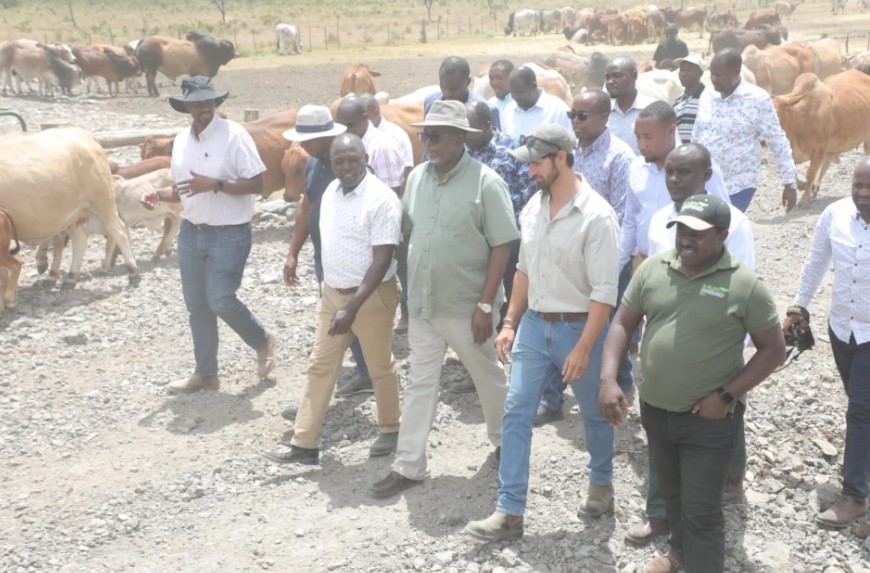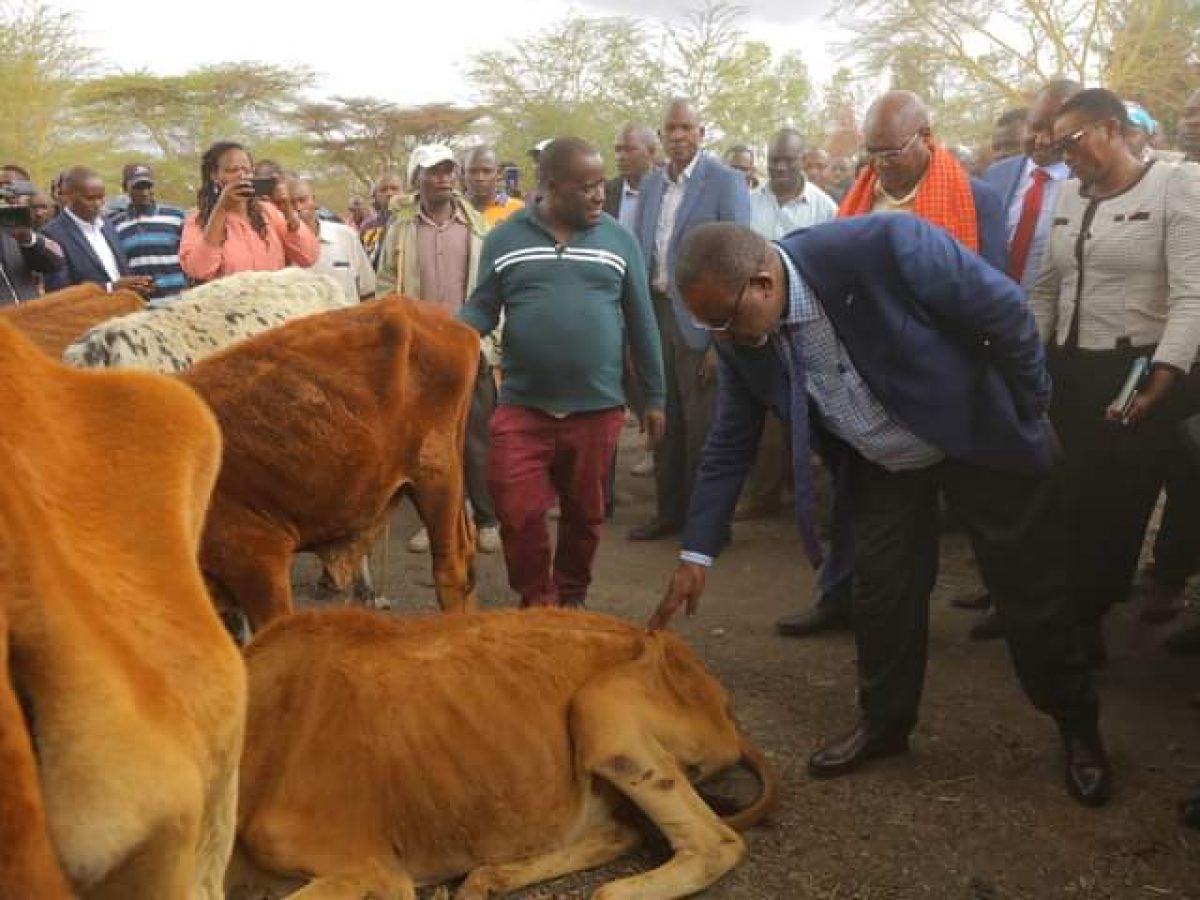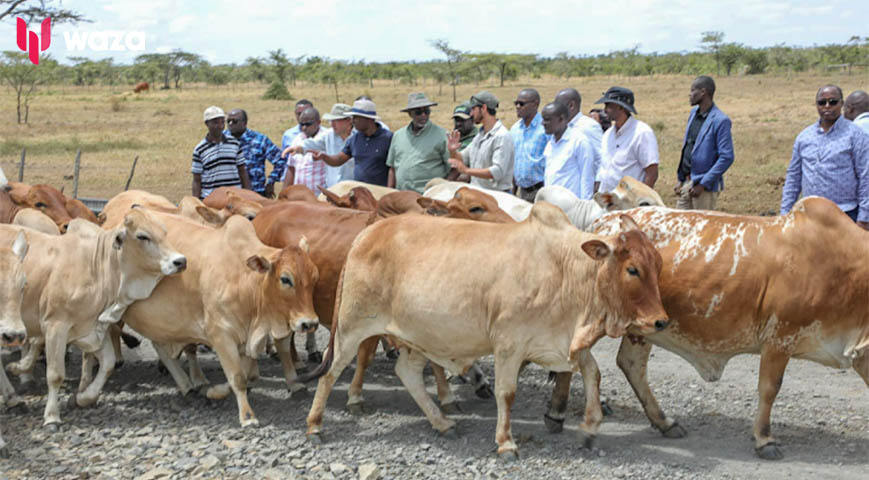To increase the nation's output of meat and leather, the government has pledged to raise the number of livestock.
Cabinet Secretary for Agriculture and Livestock Development Mithika Linturi has listed several initiatives he hopes will revitalize the nation's livestock sector.
The introduction of sexed semen at a discounted price, mass vaccination of animals to prevent illnesses and animal deaths, fattening of cows, and introduction of livestock nutrition for farmers are the foremost among them.
According to the Cabinet Secretary, the need for adequate capacity building for farmers to increase livestock production is why the nation cannot meet the demand for beef and hide from abroad.

Did you read this?
"We are keen on increasing productivity and changing the breeds of our animals, we will be rolling out a program to support our farmers by supplying sexed semen at very subsidised rates as well as transfer knowledge to them on modern livestock production," said Linturi.
In Laikipia County, the Cabinet Secretary gave a speech at the Mutara Agricultural Development Corporation Ranch as part of a fact-finding mission regarding the ministry's plans to bring back livestock farming.
The 33,000-acre ranch could be used for dairy and beef farming.
Linturi assured us that the ADC ranch would rank among the hubs for livestock production.
Along with other government representatives, the Cabinet Secretary was accompanied by Jonathan Mueke, the PS State Department for Livestock, and Joshua Irungu, the Governor of Laikipia.

Later, the delegation visited the privately owned farm at Olepajeta Conservancy to conduct benchmarking.
To facilitate trade and market connections in the pastoralist counties, the CS further stated that his ministry is dedicated to collaborating with county governments and establishing a livestock environment free of disease.
According to Linturi, "one of the main tenets of the Kenya Kwanza administration's Bottom-Up Economic Transformation Agenda (BETA) is livestock commercialization."
PS Mueke committed to the government adding value to livestock farming to ensure farmers receive higher wages.
"Our goal is to double the amount of leather produced, from 30% in 2023 to 60% in 2024," Mueke continued.
To permit the free movement of livestock and prevent illnesses and deaths, Governor Irungu applauded the government's plan to revitalize the livestock industry. He urged the prompt implementation of the periodic mass vaccination of livestock within pastoral communities.









